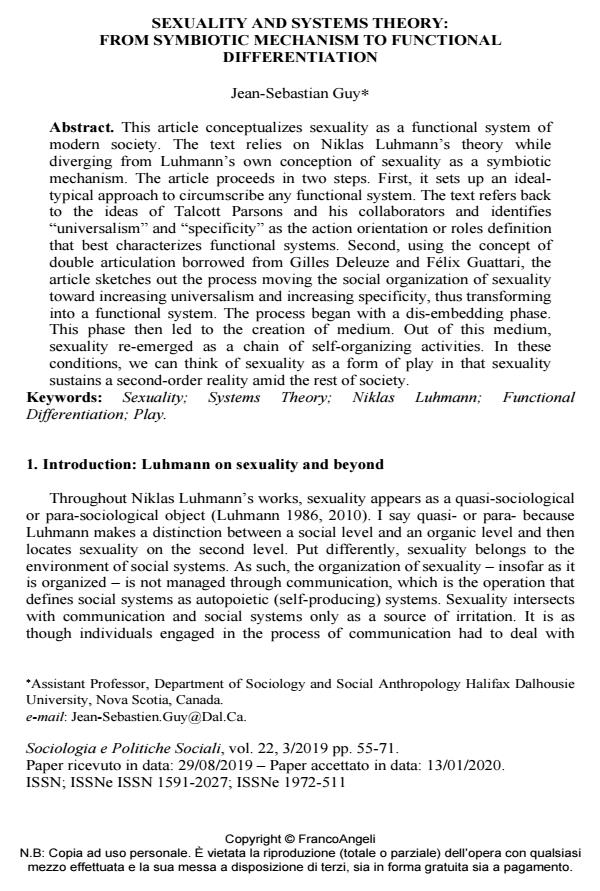Sexuality and systems theory: from symbiotic mechanism to functional differentiation
Journal title SOCIOLOGIA E POLITICHE SOCIALI
Author/s Jean-Sebastian Guy
Publishing Year 2020 Issue 2019/3
Language Italian Pages 17 P. 55-71 File size 232 KB
DOI 10.3280/SP2019-003003
DOI is like a bar code for intellectual property: to have more infomation
click here
Below, you can see the article first page
If you want to buy this article in PDF format, you can do it, following the instructions to buy download credits

FrancoAngeli is member of Publishers International Linking Association, Inc (PILA), a not-for-profit association which run the CrossRef service enabling links to and from online scholarly content.
This article conceptualizes sexuality as a functional system of modern society. The text relies on Niklas Luhmann’s theory while diverging from Luhmann’s own conception of sexuality as a symbiotic mechanism. The article proceeds in two steps. First, it sets up an ideal-typical approach to circumscribe any functional system. The text refers back to the ideas of Talcott Parsons and his collaborators and identifies "universalism" and "specificity" as the action orientation or roles definition that best characterizes functional systems. Second, using the concept of double articulation borrowed from Gilles Deleuze and Félix Guattari, the article sketches out the process moving the social organization of sexuality toward increasing universalism and increasing specificity, thus transforming into a functional system. The process began with a dis-embedding phase. This phase then led to the creation of medium. Out of this medium, sexuality re-emerged as a chain of self-organizing activities. In these conditions, we can think of sexuality as a form of play in that sexuality sustains a second-order reality amid the rest of society.
Keywords: Sexuality; Systems Theory; Niklas Luhmann; Functional Differentiation; Play.
Jean-Sebastian Guy, Sexuality and systems theory: from symbiotic mechanism to functional differentiation in "SOCIOLOGIA E POLITICHE SOCIALI" 3/2019, pp 55-71, DOI: 10.3280/SP2019-003003